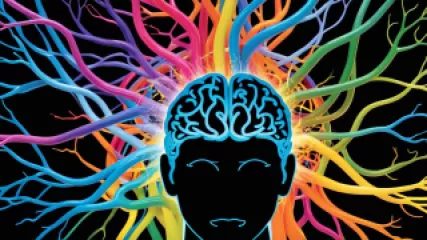Exploring the Science Behind Understanding Emotions
Introduction:
Emotions are an essential part of the human experience, shaping our thoughts, behaviors, and overall well-being. They influence how we perceive and interact with the world around us. Yet, understanding emotions and their intricate workings can be a complex task. In this article, we will delve into the science behind understanding emotions, exploring the latest research and insights that shed light on this fascinating subject.
The Nature of Emotions
Emotions are multifaceted phenomena that encompass a wide range of subjective experiences, including joy, sadness, anger, fear, and more. They are often accompanied by physiological changes, such as increased heart rate or changes in facial expression. While emotions are universal to all humans, the way they are expressed and regulated can vary across individuals and cultures.
For centuries, philosophers and psychologists have sought to unravel the complexities of emotions. Early theories proposed that emotions were simply bodily responses to external stimuli. However, contemporary research has revealed a more nuanced understanding of emotions, highlighting their cognitive and social aspects.
The Science of Emotions
Advancements in neuroscience and psychology have provided valuable insights into the science behind understanding emotions. Researchers have used various methods, including brain imaging techniques and behavioral experiments, to investigate the neural mechanisms and cognitive processes that underlie emotional experiences.
One prominent theory in the field of emotion research is the James-Lange theory, proposed by William James and Carl Lange in the late 19th century. This theory suggests that emotions arise from our perception of bodily changes in response to a stimulus. According to this view, we feel afraid because we run away, rather than running away because we feel afraid.
However, contemporary models of emotion have expanded upon the James-Lange theory, taking into account the role of cognitive appraisal processes in shaping emotional experiences. The cognitive appraisal theory proposes that our interpretations and evaluations of events determine our emotional responses. For example, if we perceive a situation as threatening, we are more likely to experience fear.
Moreover, recent research has highlighted the importance of emotional intelligence in understanding and managing our own emotions and those of others. Emotional intelligence refers to the ability to perceive, understand, regulate, and express emotions effectively. It plays a crucial role in various domains, such as interpersonal relationships, decision-making, and mental health.
The Role of Emotional Intelligence
Emotional intelligence coaching has gained prominence in recent years, as individuals seek to enhance their emotional awareness and regulation skills. By developing emotional intelligence, individuals can better navigate social interactions, manage stress, and make informed decisions. This coaching approach often incorporates techniques from cognitive-behavioral therapy and mindfulness practices.
Research has shown that individuals with higher emotional intelligence tend to have better mental health outcomes. They are more adept at managing stress, resolving conflicts, and maintaining satisfying relationships. Additionally, emotional intelligence has been linked to improved academic and professional performance.
Emotional intelligence coaching typically involves self-reflection exercises, skill-building activities, and guidance from trained professionals. Through these interventions, individuals can gain a deeper understanding of their emotions, learn effective coping strategies, and enhance their overall well-being.
Conclusion
Understanding emotions is a complex endeavor that encompasses various scientific disciplines, including neuroscience, psychology, and sociology. Through ongoing research and exploration, we continue to uncover the intricate mechanisms underlying our emotional experiences.
By delving into the science behind understanding emotions, we gain valuable insights into ourselves and others. Developing emotional intelligence can empower us to navigate life's challenges with greater resilience and create more meaningful connections.
So, let us embrace the journey of exploring emotions, unraveling their mysteries, and harnessing their power to lead fulfilling lives.






